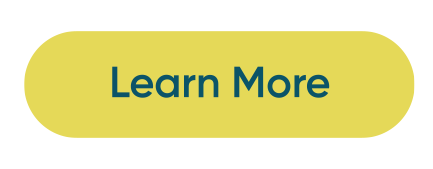As more organizations adopt digital payment solutions and cloud-based payment processing, staying ahead of compliance standards like SOC 1, NACHA, and PCI has become more critical than ever. From PCI DSS requirements for cardholder data to SOC 1 controls for financial reporting integrity and Nacha rules for ACH transactions, the burden to remain PCI compliant for billers is growing by the year.
The challenge? Each framework evolves regularly, each with its own documentation, testing, and reporting requirements — and falling behind can mean serious risk exposure.
For many billing organizations like utilities, municipalities, and insurers, the compliance effort has become as resource intensive as billing itself. But there’s a smarter way to stay compliant without adding staff or suffering through sleepless nights: leveraging a modern, cloud-based payments platform that shoulders the compliance burden for you.
The Cost of Going It Alone
Let’s start with PCI DSS. Any organization that stores, processes, or transmits cardholder data must adhere to strict standards around data protection, access control, and vulnerability management. But even maintaining a PCI-compliant environment requires continuous monitoring, annual assessments, and penetration testing. The cost of failure can include fines, legal liability, and damaged customer trust.
Maintaining PCI DSS compliance isn’t just about checking a box: it’s about protecting your customers and your business. Following the PCI compliance standard, also known as the Payment Card Data Security Standards, ensures your payment processing platform stays secure and up to date.
SOC 1 compliance brings its own complexity — especially for billers that handle or outsource payment processing. SOC 1 requires documented internal controls over financial reporting, including system security and change management. Missing even one control in an audit can delay certification, impacting your ability to demonstrate financial integrity to regulators or partners.
Then there’s Nacha, which governs all ACH payments. Billers must comply with rules for authorization, data security, and risk management. Violations can trigger fines or even result in loss of ACH network access, an existential threat for organizations that depend on recurring payments. Whether you’re enabling direct debit or recurring billing, choosing a platform that supports secure ACH payment processing is essential. Leading ACH payment processing companies offer fully compliant, scalable ACH payment solutions that meet both Nacha and PCI standards.
Each of these frameworks exists for a reason: to protect sensitive data and ensure reliability. But managing them internally requires deep security expertise, constant policy updates, and technology investments that can overwhelm IT and finance teams alike.
Why Shared Compliance is Smarter
A growing number of billers are realizing that the path to reliable compliance runs through strategic partnership. By working with a specialized electronic bill presentment and payment (EBPP) provider, billers can offload much of the compliance responsibility while actually improving their security posture.
Cloud-based payment platforms are designed from the ground up for compliance. They operate within PCI Level 1 certified environments, maintain SOC 1 and SOC 2 audits, and embed Nacha compliance directly into their ACH workflows. This shared responsibility model means the provider handles the infrastructure, encryption, tokenization, and monitoring, while the biller focuses on customer experience and collections.
Instead of coordinating multiple audits, managing vendor risk assessments, and maintaining firewalls or key rotations, billers can rely on their payments partner to maintain continuous compliance certifications. It’s not just about reducing effort — it’s about reducing risk.
Less Overhead, More Peace of Mind
Beyond compliance, there’s a strategic upside to this approach. By partnering with a cloud payment solution like InvoiceCloud, compliance with evolving regulations — including PCI compliant payment requirements — can be achieved with minimal internal overhead. When PCI requirements change (as they did with PCI DSS 4.0), your payment partner implements the necessary updates system-wide, often without any operational disruption on your end.
The same goes for SOC 1 and Nacha updates: when your provider is built for compliance, you’re always one step ahead of auditors and regulators. Meanwhile, your teams can focus on value-added initiatives like customer engagement, digital adoption, and reducing delinquencies.
PCI Compliant Payments as a Competitive Advantage
In an environment where cyber threats and regulatory scrutiny continue to rise, being able to demonstrate compliance isn’t just about avoiding penalties, it’s about trust. Customers are increasingly aware of data security, and regulators are more aggressive in enforcement. Billers who can confidently show that their payment ecosystem meets the highest standards of protection will stand out in the market.
From digital payment services to ACH and credit card support, modern organizations require payment security solutions that are not only flexible and user-friendly, but also rigorously compliant. InvoiceCloud provides a trusted, scalable payment cloud architecture that ensures your organization stays aligned with SOC 1, Nacha, and PCI compliance requirements without burdening your IT team.
To learn more about the benefits of secure and compliant payments platforms, schedule time to talk with our team today.

